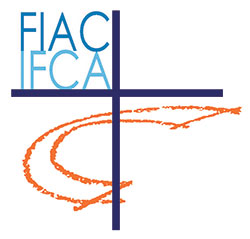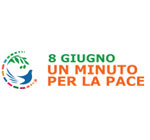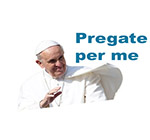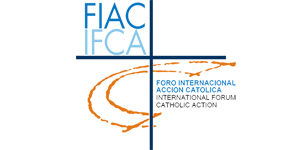Blessed Virgin Mary and St. Stanislaus the Martyr in the mystery of the Eucharist Bishop Mariusz LESZCZYNSKI
DISPONIBILE SOLO IN INGLESE
DISPONIBILE SOLO IN INGLESE
Homily preached on May 8th 2010
in the Chapel of the Holy Icon of Black Madonna of Czêstochowa
On May 3rd we worshipped the blessed Virgin Mary, our Mother and Queen and today, on May 8th – we remind in liturgy the patron of Poland – St. Stanislaus, Bishop and Martyr. Before the throne of our Jasna Góra Lady we embrace the Church and our homeland together with all its worries and hopes. We ease with prayers our pain after national tragedy which happened four weeks ago in Smolensk. We will also pray for Catholic Action, which home and foreign representatives are present today at Jasna Góra to ask Mary – the Star of New Evangelism (John Paul II) for protection and blessing in apostolic actions undertaken. We trust, that St. Stanislaus, faithful and courageous apostle of Jesus Christ will also plead for God’s grace for us.
The Servant of God Stefan cardinal Wyszyñski Primate of Poland during the session closing the debates of Second Vatican Council in 1965 offered to the bishops of the world unusual gift – altar bread with an image of Black Madonna of Czêstochowa. Such hosts prepared in Jasna Góra of wheat flour were sacrificed upon the altar in this chapel by pilgrims as a symbol of “Council acts of goodness”. Jasna Góra Lady’s image on the host was a reason of surprise for some and objection for others, but also provoked questions: is it allowable, is it in accordance with liturgical rules? Those doubts were quickly explained by Cardinal Wyszyñski, who reminded the words of the hymn: Ave Verum Corpus natum de Maria Virgine). He also reminded the words from “the Apostles Creed” and from “Credo” – formed in Councils of 4th c (Catechism of the Catholic Church, n. 195-196). We say about Jesus Christ in “The Apostles Creed” that he was born of the Virgin Mary, and in “Credo” we pray: “he was born of the Virgin Mary and became man”.
These were the arguments which explained all doubts.
The Servant of God John Paul II in Apostolic Letter on the Eucharist – Mane nobiscum Domine, writes: “The Church, which looks to Mary as a model, is also called to imitate her in her relationship with this most holy mystery. The Eucharistic Bread which we receive is the spotless flesh of her Son ” (p. 31). Let us look, in this light, at the martyrdom of Kraków Ska³ka on April 11th 1079 during celebration of the Eucharist. It is difficult today to reenact exactly that event. We do not know if Bishop Stanislaus had been killed by Boles³aw’s the Bold warriors or by the King himself. We do not have to, however, know those details to say, that the bishop-martyr is a courageous witness to the faith and defender of Christian moral rules.
Jesus says: “Greater love hath no man than this that a man lay down his life for his friends” (J 15, 13). In the name of this love “for our sake he was crucified” (Credo): died and he rose again! And what for did bishop Stanislaus sacrifice his life in “Kraków Calvary”? Let us then open the pages of history of Poland and the Church of those times and let us follow the circumstances in which both – the King Boles³aw the Brave and Bishop Stanislaus acted. They were, as we see, difficult and complex and therefore the conflict between the monarch and the bishop finished so tragically. It is known, that king Boles³aw was busy at that time with strengthening the state power, hence he carried on long war expeditions causing long-lasting parting of his soldiers with their families. And at the same time he was a hot-tempered and ruthless character, who did not care for God’s Commandments and the rights of evangelic love. And such was the ruler who bishop Stanislaus faced. He bravely admonished the king and branded his misdeeds in personal life and mistakes in ruling the kingdom. He defended the rights of the serves and moral order in the state. That was the reason of his martyrdom. The cult of his person started soon after his death and in 1253 Pope Innocent IV canonized him in Assisi.
The cult of Bishop-Martyr St. Stanislaus has been continuously lasting in Poland until today. John Paul II was its great propagator. He spoke: “Today too, in fact, there is need for courage to pass on and to defend the holy deposit of the faith. At the same time, we are in need of that love of God which is manifested in ceaseless concern for men and women, for every son and daughter of God, exposed to adversities that seem to extinguish the flame of hope in the victory of truth, goodness and beauty in a better future in temporal reality and in eternal happiness in the Kingdom of God” (The Letter to the Archdiocese of Kraków and the Church in Poland on the occasion of the 750th anniversary of Canonization of St. Stanislaus the Bishop, L’Osservatore Romano, 2003, no 6, p. 45).
St. Stanislaus, good shepherd and a martyr – is a pattern to follow for bishops, priests and all the disciples of Jesus, called for building “the house of your life on the rock of divine grace” (ibidem). He constantly reminds that Divine Right is obligatory for everyone: great and small of this world. Therefore all disciples of Jesus, including members of Catholic Action should remember that they have right and duty to contribute to evangelical values to every sphere of life – including social and political ones. The Servant of God John Paul II taught: “Today the world, including our homeland, needs many men and women of mature faith who courageously confess Christ in every place and situation. There is a need for heralds of the Gospel and messengers of the truth. We need men and women who believe and love, and who express this love of God in an authentic service to man. The greatest wealth that we can pass on to the younger generation is our faith. Blessed is the nation that walks in the light of the Gospel, that lives on divine truth and that draws knowledge from the Cross (Rome, Polish National Pilgrimage, July 6th 2000).
St. Stanislaus – teach us to be real witnesses to the redemption: “salt for the earth” and “light for the world” (Mt 5, 13-14). Pray for us and intercede for us before God.
Mary The Lady of Jasna Góra
Woman of the Eucharist and the Queen of Catholic Action (John Paul II)
We entrust ourselves and apostolic tasks of our
Associations to Your mediacy:
“Teach us to be present in the Church
and social life.
Teach us to take responsibility for the world’s
Fate and for the fates of our terrestrial homelands.
Mother of Wisdom, teach us to create such a culture
And civilization, which based on Divine
Rights would serve a man……
Make us not escape from new tasks.
All contemporary reality waits for its full
Evangelism. We wish, together with Christ,
To sanctify and change this world (….)
Lead us to your Son, reconcile us with your Son,
Donate us to Him.
(John Paul II, Act of entrustment to the Virgin Mary – Jasna Góra, August 15th , 1991, L’Osserv. Rom., 1991,no 8, p. 30).
V European continental Meeting – Kracow, 6-9 May 2010
“LIFE, BREAD, PEACE, FREEDOM”. Catholic Action Lay People in their towns for a more humane world
- rsris_slide_link:
- wps_subtitle:
- Bishop Mariusz LESZCZYNSKI
DISPONIBILE SOLO IN INGLESE - pl_view_post:
- 2268







